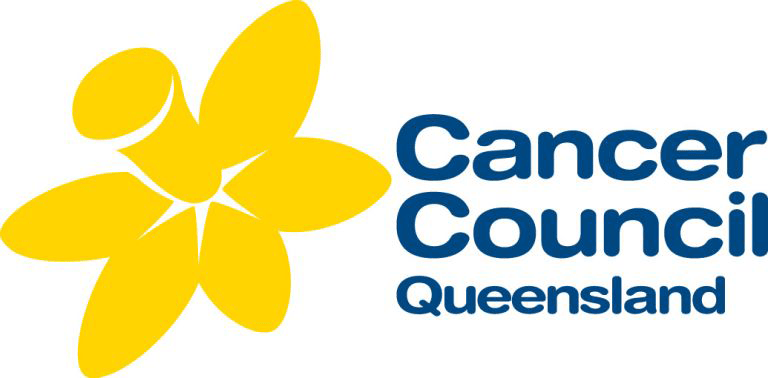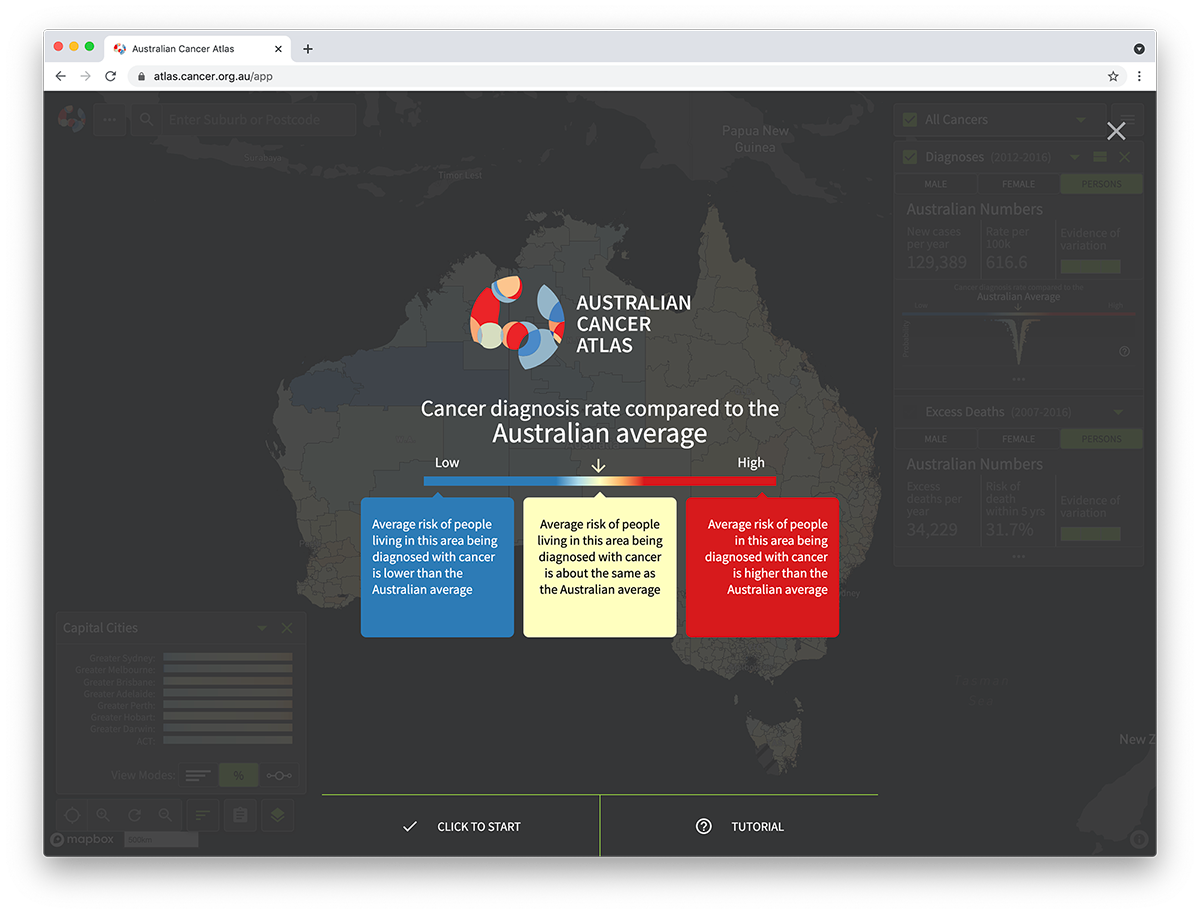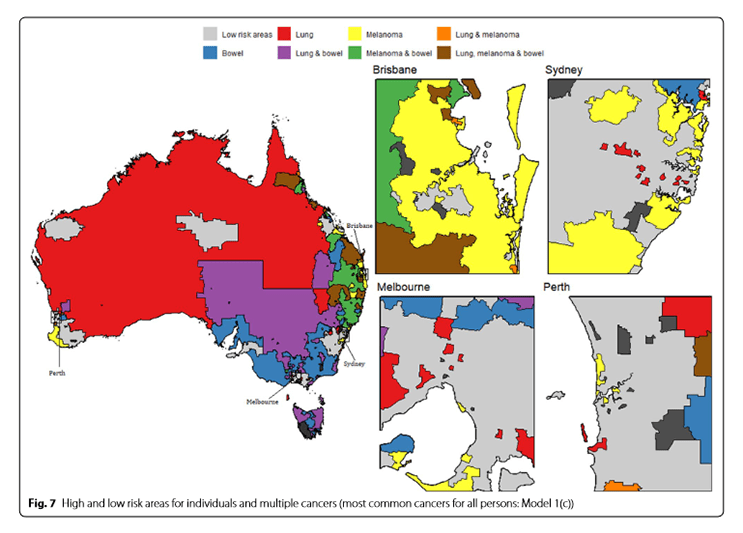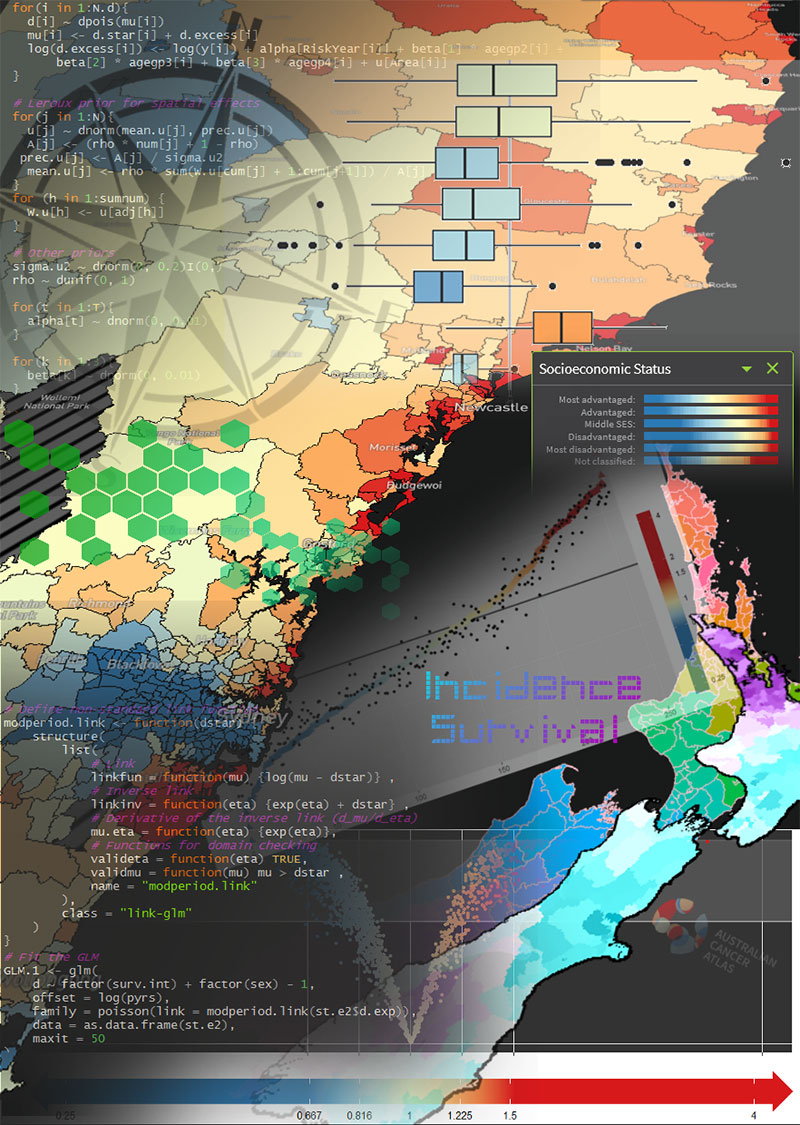
Cancer Council Queensland (CCQ)
The Cancer Council Queensland is Queensland’s leading non-government community organisation in cancer control. They are committed to providing all Queenslanders with the best possible prospects of preventing, detecting, effectively treating and surviving a cancer diagnosis.

Overview for 2020
ACEMS and Cancer Council Queensland (CCQ) have enjoyed a strong and productive collaboration since CCQ joined the Industry Affiliate Program in 2016. This collaboration has and continues to encompass research and other engagements.
A continued main research focus of this collaboration has and continues to be the Australian Cancer Atlas – an award-winning transdisciplinary multi-year research project which has delivered significant impact. See below for an overview of this project.
Highlights relating to this project for 2020 include:
- ACEMS CI Kerrie Mengersen, AI Susanna Cramb and Cancer Council Queensland were awarded an ARC Linkage Grant to develop additional statistical models to be used in the Australian Cancer Atlas
- Research planning sessions
- ACEMS PhD student Farzana Jahan completing her PhD and publishing research harnessing Australian Cancer Atlas data for new insights
- ACEMS and CCQ an updated a practical guide for developing a cancer atlas and open source software, which can benefit a range of stakeholders, including health authorities aiming to produce a national cancer atlas in their own jurisdiction.
In terms of engagement, researchers have met regularly, there’s been a number of research planning and update sessions, and CCQ has participated in a range of ACEMS events, including the Bayesian Research Group (BRAG) presentations.

The Australian Cancer Atlas was launched in 2018 as a collaboration between Cancer Council Queensland (CCQ), ACEMS and QUT.
The Australian Cancer Atlas is an important tool for use in the understanding and control of cancer, being the first online, interactive platform showing how cancer diagnosis and survival for different cancer types varies geographically (across small areas).
It uses cutting edge methods in geospatial health statistics to provide a comprehensive national picture of how the burden of cancer varies depending on where you live, with new developments increasing it’s functionality and the insights it can produce.
The Australian Cancer Atlas is freely accessible to the public and has been used: to inform public health policy; for education and training; for research; and the development of a similar atlas in other jurisdictions, including New Zealand.
In 2020, the Australian Cancer Atlas team won the APSEA Award for Spatial Enablement and, also the top award, the JK Barrie Award for Industry Excellence.
Linkage Grant Success
ACEMS CI Kerrie Mengersen, AI Susanna Cramb, CCQ researchers and others were awarded an ARC Linkage Grant to develop additional statistical models to be used in the Australian Cancer Atlas, including:
- examining how the geographical patterns change over time
- additional measures of cancer burden; and
- more innovative ways of communicating that to the users of the Atlas.
They will recruit and appoint two new PhD students to work on related projects:
- Improving the analysis of cancer risk factor data for small areas of Australia; and
- Statistical Methods for Federated Learning
PhD Research by Farzana Jahan - Modelling Multiple Cancer Types
ACEMS PhD student Farzana Jahan completed her PhD in 2020, and co-authored a publication entitled “Multivariate Bayesian meta‑analysis: joint modelling of multiple cancer types using summary statistics”, using data from the Australian Cancer Atlas.
Her research, in collaboration with CCQ involved the development of Bayesian meta-analysis models that can analyse online available disease data from spatial data bases for getting further insights about the underlying patterns of disease incidence, without having access to the individual level data which has confidentiality issues and is administratively cumbersome. This novel approach was applied to the Australian Cancer Atlas (ACA) to identify potential differences in incidence of various cancer types in major cities, regional and remote areas in Australia.
The work was published in two Q1 journals and received media attention. Farzana’s co-author, ACEMS AI, Susanna Cramb was interviewed in ABC radio SEQ mornings about this work and Farzana also gave an interview in a Science related TV show in Iran International TV.
The proposed meta-analysis models will help policy makers to make informed decisions by exploring newer and significant research questions, without waiting for the access to confidential individual level disease data. These methods potentially broaden the scope of cancer research and usability of spatial data bases in order to make informed decisions.


Cancer Atlas Practical Guide and Use of Open Source Tools

A key output from the ACEMS and CCQ collaboration is the publication and update in 2020 of an enabling guide for “Developing a Cancer Atlas using Bayesian Methods: A Practical Guide for Application and Interpretation”.
This guide has been published on the Cancer Atlas website, and is freely available to all, and of particular use by those seeking to understand or create a national cancer atlas, and make use of open source tools for this purpose.
Its purpose is to provide a practical guide to epidemiologists and other researchers who are interested in developing a cancer atlas. The methodology comprises fully Bayesian spatial models and novel visualisations, with the aim of presenting the modelled estimates as a useful, fine-resolution atlas.
ACEMS looks forward to continuing research collaborations with Cancer Council Queensland in 2021.